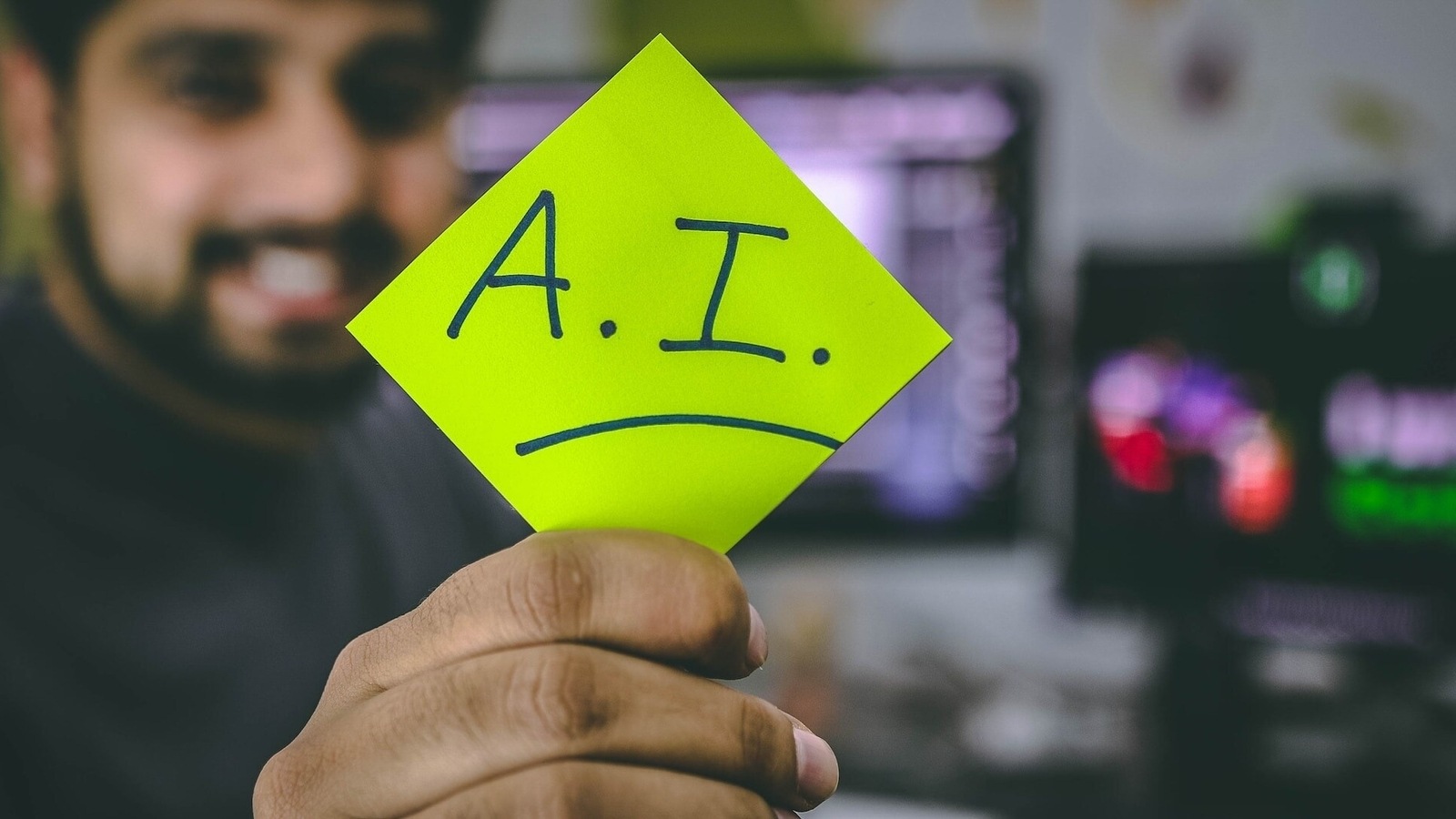5 things about AI you may have missed today: AI set to target vandals in UK, AI boom may power Nvidia to No. 1, more
AI Roundup: Historic England is taking the help of AI to identify vandals who use graffiti art in churches, castles, and monasteries. AI boom in semiconductors likely to power Nvidia past Intel and Samsung; Google may sack 30000 employees due to AI and more.

Festivities are in full swing across the world as we enter Christmas Eve, but fascinating stories from the world of artificial intelligence keep emerging. In the UK, Historic England, which is an executive non-departmental public body, is taking the help of AI to fight graffiti art vandals who deface historic churches, castles, and monasteries. In other news, as many as 30000 employees can lose their jobs in a massive Google layoff exercise, as per reports. This and more in today's AI roundup. Let us take a closer look.
AI to help fight vandals
AI may be employed as a deterrent against graffiti vandalism targeting historic sites such as churches and castles, reported the Guardian. Historic England is initiating a groundbreaking project that involves using AI to identify vandals through their tags, track their movements by comparing graffiti in various locations, and analyze paints to trace the origin of spray cans. This AI technology may also be utilized to identify stolen lead from church roofs, providing a valuable tool for law enforcement and scrap dealers, accessible through a smartphone app.
Mark Harrison, head of heritage crime strategy at Historic England, told the Guardian, “Go on to Google Play or the App Store and you can get apps that identify plants, trees and rocks. It's exactly the same process…To the human eye, graffiti may look similar, but to the machine it might be quite distinctly different…Working with manufacturers, we might be able to get it down – using the AI imaging – to say what brand of paint it is. Working with retailers, we can see if we can reduce the source”.
Google planning 30000 layoffs, says report
According to a report by Live Mint, which quoted The Information, as many as 30000 employees may face layoffs soon in Google as the AI innovation by the company has led to those positions being surplus. many job roles in Google's ad sales department are becoming redundant after Google introduced a new AI tool called Performance Max. It can give suggestions as well as create ads for its clients that have the capability of performing well. These ads require next to zero human intervention and can operate entirely autonomously.
Nvidia closing in as revenue leader in semiconductor space due to AI boom
Nvidia is poised to become the new revenue leader in the semiconductor industry, breaking a three-decade dominance by Intel and Samsung Electronics, reports Nikkei Asia. With a high market share in graphics processing units (GPUs), crucial for AI, Nvidia is expected to achieve $58.8 billion in revenue for the fiscal year ending January 2024, double the previous year's figure. This surpasses Samsung Electronics' expected revenue of about $49 billion, down 34%, and Intel's forecasted revenue of $53.9 billion, a 14% decrease.
AI can tell bedtime stories to children
Parents longing for more episodes of animated shows to show them to children as bedtime stories have taken matters into their own hands, as per a report by Wired. Using OpenAI's customizable bots called GPTs, a London-based developer named Luke Warner created a story generator called Bluey-GPT (based on an Australian animated preschool television series by the same name). This AI tool starts each session by asking for personal information such as name, age, and details about the day, then generates personalized stories featuring Bluey and her sister Bingo. The aim is to provide a more engaging and customized experience for young viewers.
Artist uses digital tools to stop AI from copying their style
Artists facing challenges from AI replicating their styles without credit or compensation have collaborated with university researchers to counter such copycat activity, reports AFP. US illustrator Paloma McClain, after discovering her art was used to train AI models without acknowledgment, employed the free software Glaze, developed by researchers at the University of Chicago. Glaze disrupts AI training by making imperceptible pixel tweaks that result in significant differences in digitized art, outsmarting AI models. Originally designed to disrupt facial recognition systems, Glaze was created in four months.
"We're basically providing technical tools to help protect human creators against invasive and abusive AI models," said professor of computer science Ben Zhao of the Glaze team.
Catch all the Latest Tech News, Mobile News, Laptop News, Gaming news, Wearables News , How To News, also keep up with us on Whatsapp channel,Twitter, Facebook, Google News, and Instagram. For our latest videos, subscribe to our YouTube channel.































